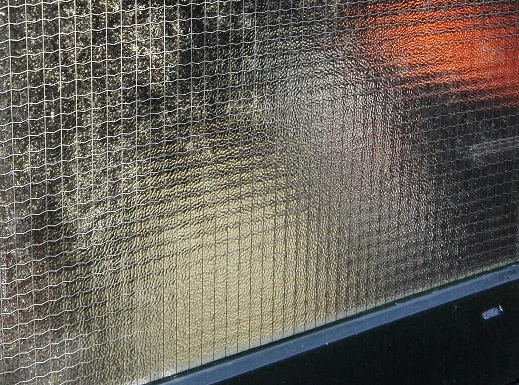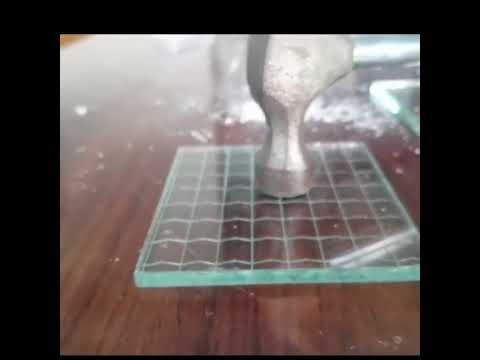What is Wired Glass


Wired glass is a type of safety glass that has two or more layers, one being inert wire mesh. Wired glass is typically made of clear float glass, but tinted and reflective glasses are also available. Wired safety glass can be used in applications where grade B safety glass is required.
What is it Used For?
Wired glass was typically used in buildings for it’s fire resistant purposes because of its low cost and natural qualities to resist heat. It was used as safety glass since it’s wire mesh acts like a net to keep the shards contained and reduces the chances of causing injury.

Watch this video on YouTube
Is Wired Glass Still Used?
Today wired glass is used less frequently because of its low durability and impact resistance when compared with other types of safety glass such as laminated and toughened glass.
Wired glass is typically only used in applications where it’s fire resistant properties are required or just preferred by the supplier. Wired glass can still be found in older buildings that have not been renovated since the 1980’s.
Is Wired Glass Stronger than Ordinary Glass?
The wire mesh actually weakens the glass to such a degree it is only half as strong as ordinary float glass. Wired glass is typically just used in areas where impact resistance is required over strength. Wired glass tends to be brittle and not able to handle much force or pressure before fracturing.
Is Wired Glass Safe?
Wired safety glass can pose a hazard if it has been broken (either by accident, extreme heat, acts of nature) because the wire mesh can break away from the glass. Wired glass should always be replaced when it has been compromised or damaged in any way and is not recommended for applications in areas where there are children, or around pools or spas.
Author


Viet is a glazier servicing the area of Bankstown NSW and has many years experience providing glass repair and aluminium shopfront installation services.
